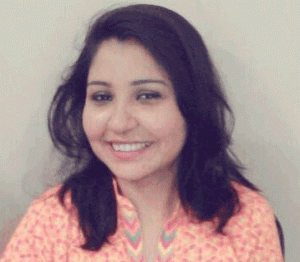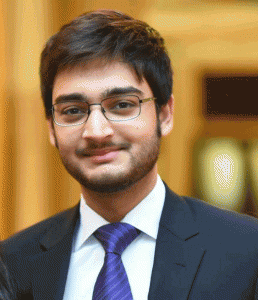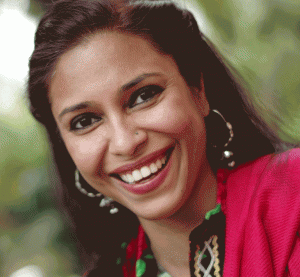Pakistan Of My Dreams
By Newsline Admin | Special Report | Published 8 years ago
To celebrate our nation’s 69th anniversary, Newsline asked some young professionals to share their vision of Pakistan. The idea was to identify faults by all means, but not to fixate on them, and in fact see how even a problematic present could be converted into a hopeful future, given the intention and resolve. These individuals disclosed their aspirations for Pakistan’s future as we approach the seven-decade milestone.
Mashal Hussain is due to start her last year at McGill University, pursuing a degree in International Development and International Relations.
I don’t mean to be obtuse, but this is the Pakistan of my dreams. For a country so mismanaged, expecting perfection would be unrealistic. Every country has its fair share of setbacks but us Pakistanis should take pride in our country and people’s energy and proactivity. Despite the numerous setbacks, including, but not limited to, corruption, poverty, terrorism, human rights violations and lack of hygiene, our civil society constantly mobilises to better the country for themselves and those less fortunate. We must be aware of our weaknesses in order to convert them into strengths.
The fact that civil society makes an effort to be so driven, for social benefits, bodes well for our future. Today’s youth are tomorrow’s leaders. For every issue that arises, be it an earthquake or a heat wave, people react to the situation instantly. During last year’s heat wave, citizens took to the streets to distribute water, opened their doors to shelter the homeless and spread awareness so that others could contribute too. There is no shortage of people willing to do what they can to better the situation.
We are blessed with a generous populace. Inherent in a collectivist mindset exists a sense of responsibility for the community and the people around you. If a car breaks down in the middle of the road, instantly men will start pushing it to kick-start the engine. When an accident occurs, cars and motorbikes will stop, regardless of their destination, to make sure that the situation is under control and the assistance required is en route. During Ramzan, bed sheets are laid out on the roads and Iftari provided for empty stomachs. Pakistanis never fail to rise to the occasion.
Small interventions culminate in larger change. Pakistan serves as a success story for the ripple effect, in that every contribution, no matter what its magnitude, has a domino effect on society. Providing a single source of clean, filtered water outside on a busy street helps ensure that passersby have access to sterile drinking water. Educating one child ensures that the family has hope for a brighter, sustainable future. There is no dearth of areas that require assistance or development, but there is also no shortage of NGOs and organisations working to mitigate these issues.
Only in developing countries like Pakistan can we get the satisfaction that comes with helping one person and instigating change on a larger scale. And for Pakistanis, where else would we inject our effort and time except on our own soil? The happiness that comes with engendering change in the lives of others is common to Pakistanis across the board, as we all work within our own spheres to help those whom we can, and in turn contribute to the betterment of our country and its future. First-hand contribution evokes the necessary sense of responsibility as we tackle the issues that plague this country.
These are signs of a population full of energy who will make for great leaders of the future Pakistan. Leaders who are brought up in an environment where they are forced to identify the government’s failure and fill those vacuums themselves will be more cognizant of the issues they need to confront when they do rise to positions of authority and power.
Pakistan suffers from a range of issues, all across the spectrum. But the biggest plague that contaminates the country is negative energy. If the negativity that consumes Pakistanis is converted into positivism, change will ensue much quicker. We must not focus on the gaping difference between our ideal and our reality, but rather celebrate our vibrant population and understand that reform comes slowly. For a country of such diverse ethnic groups, we must concentrate and unite ourselves based on the positive aspects of our society and use them to our advantage. With an optimistic outlook comes positive change. My dream for Pakistan is that we learn to appreciate and love our country, and use that sentiment to better it step by step.
Hina Shehzadi is a human rights activist from Lyari. She is studying Women’s Leadership and Development at St. Francis Xavier University in Canada.
 Pakistan is a very diverse country, but violence against women is endemic and widespread, cutting across all differences. Unfortunately, the country has a long list of gender-based violence cases, including domestic abuse, rape, trafficking, honour killing, forced conversion, child marriage, public humiliation, incest and sexual harassment. Extreme forms of physical abuse include murder, acid-throwing and burning.
Pakistan is a very diverse country, but violence against women is endemic and widespread, cutting across all differences. Unfortunately, the country has a long list of gender-based violence cases, including domestic abuse, rape, trafficking, honour killing, forced conversion, child marriage, public humiliation, incest and sexual harassment. Extreme forms of physical abuse include murder, acid-throwing and burning.
Amnesty International’s report for 2015/2016 says that girls and women continued to face violence and threats in Pakistan. At least 4,308 cases of violence against women and girls were reported. The figure included 709 cases of murder, 596 of rape and gang-rape, 36 of sexual assault, 186 of so-called “honour” crimes and 1,020 of kidnapping. Despite the enactment of the Acid Control and Acid Crime Prevention Act in 2011, at least 40 acid attack cases have been recorded. But ground realities and field experience indicate that this data is just the tip of iceberg, as most cases go unreported due to lack of awareness, distrust of the judicial system and concern for the family’s reputation.
Despite efforts in recent years to enact legislation to protect women against violence and ensure their rights, we do not find any significant improvement in women’s status. Recent cases have, once again, focused attention on the scourge of honour killing. They include the murder of social media celebrity Qandeel Baloch in Multan by her brother and of Sumaira in Karachi, a 16-year-old girl also killed by her brother for talking to a man on the phone. Moreover, the government has failed to address the issue of forced conversion of Hindu and Christian women to Islam.
In addition, women were denied the right to vote in various parts of the country, during a parliamentary by-election in Lower Dir, Khyber Pakhtunkhwa. None of the eligible 50,000 women in the constituency voted after warnings reportedly broadcast on mosque loudspeakers. These cases demonstrate that neither Pakistan’s laws nor its social norms and religious practices protect or guarantee women a secure place as equal citizens to men in Pakistani society.
Regardless of an unfavorable environment and multiple challenges, many Pakistani women have proved that they have the guts and skills to surpass all hardships. They are determined to claim their rightful place in society. Among those with remarkable achievements are Sharmeen Obaid Chinoy, twice an Oscar award winner; Humaira Bachal, a renowned girl’s education champion, and the youngest-ever Nobel Laureate, Malala Yousafzai.
Pakistani women have been going to school and university, holding jobs and earning money for themselves and their families for several generations now, yet they live with widespread discrimination.
The Pakistan of my dreams needs a paradigm shift to bring women at par with men in society. Women must themselves break the silence to claim their rights. Additionally, the state should play a more active role in eliminating structural barriers to gender equality, taking into account vulnerabilities of women in various roles, whether at individual, household, community, national or global levels. It should ensure the equal participation of women in all public and private decision-making, in the economic, legal, social, educational and political spheres. Most of all, more affirmative action policies are needed to ensure that women from excluded communities can also participate in socio-political leadership and governance.
Hassan Ansari is a corporate lawyer working for Sanofi Aventis Pakistan, and has an avid interest in International law and Politics.
 With one of the best legal systems in the world, having given more than just a few legal codes to our neighbour, India, and being one of the nations which has legal precedents from 1947 to today, the Pakistan a lawyer dreams of is more than just a decorated court with polished floors.
With one of the best legal systems in the world, having given more than just a few legal codes to our neighbour, India, and being one of the nations which has legal precedents from 1947 to today, the Pakistan a lawyer dreams of is more than just a decorated court with polished floors.
Although our legal system seems to inspire others, there are flaws in its practice domestically.
Unionising the legal fraternity happens all over the world but protests where lawyers group together outside the Supreme Court; a dispensation where there is provincial under-representation, ill-equipped courts and under-paid advocates is not what a lawyer would dream of. The concept of representing your client diligently in a place like Pakistan and believing that your role is not to play with words but rather uphold the rule of law, is something I dream of.
I dream of a country where borders between institutions are well defined, the separation of powers is clear and people are held accountable in the eyes of the law for whatever they do, from terrorising a jaywalker to committing murder.
I believe that our system is not corrupt, our people are. I dream that people are able to realise the true potential of the systems this country has, be they in the legal, medical or educational field. Most of all, I dream that people exhibit tolerance and empathy, despite their differences. Frustration and agitation will not provide solutions to our problems, restraint and control will.
Time and time again, the people of this nation compare themselves to nations that have existed for over 200 years. In our 70th year, we wonder why we can’t be like them. As ironic as it may seem, it is also impressive that we are venturing to compare ourselves to the greatest countries in the world. If we put our minds and energy to it, our dreams may even come true!
I dream that we snap out of our fantasy bubble face reality. The one good thing about reality is that it enables you to think and plan step by step, encouraging productivity to soar. Fantasies consume one’s time and, for a place like Pakistan where hope and hard work never go to waste, the shift to progress will be massive, once we move towards undertaking a reality check.
I dream that our aviation industry begins to realise the true value of its pilots and aviators. Given the old and decrepit planes they fly, it is a miracle that they manage to transport thousands of people safely every day. I dream that our military realises that we appreciate them more than they can ever imagine. I dream that our politicians play politics for the benefit of the country and not among themselves, because that is real politics.
I dream that the leaders of Pakistan live in Pakistan, without any barriers or protocol that prevent us from going to work or walking the streets. I dream that our leaders are of the people, by the people and for the people. That if they are unable to perform, they pass the torch on to others. I dream that our country gives people opportunities with equal pay for equal work. I dream that we learn how to appreciate the good and forgive the bad. I dream that our country transcends its limitations to move on to a path to the real Pakistan for which our founding fathers gave their lives.
Nuzair is pursuing chartered accountancy and loves to voice his views on social issues and cricket.
The visionary starts with a clean sheet of paper, and re-imagines the world.” These famous words by Malcolm Gladwell provide the perfect foundation of how I would like to foresee a better, securer and stronger Pakistan. What if we could rewind time and re-enter the new, yet torrid era of the late 1940s? A newly established Pakistan was developed out of sheer compassion for religious and political autonomy, which validated the two-nation theory laid down by the visionaries. Pakistan started with its due share of financial, social, legal and geographical difficulties and struggled in its initial stages greatly. However, as we approach our 70th anniversary, it is time to ponder: is this the Pakistan our ancestors envisioned? Certainly not.
It goes without saying that Pakistan is one of the most blessed countries in terms of natural resources. We have almost everything in the world that can help us survive on planet Earth, except good governance. It is a problem which has plagued our history right from the start, with alternating regimes (military and democratic) assuming power at different junctures. Further, the bureaucratic culture has created more problems than ease for the nation. The sporting sector has bought us many laurels in the past and present too, but it has its fair share of political and administrative shortcomings. However, it would not be right to blame the leadership alone for all our shortcomings. The common man is as much to blame as the leadership.
What could be different? How should Pakistan be represented? What can be done right? These are the questions which can lay the foundation for a better Pakistan. The very first thing that I would like to see is the rejuvenation of patriotism and national spirit. An Indo-Pak sports battle should not be the only time that we back our nation wholeheartedly. Unless we respect our national values and appreciate what this nation has given us, Pakistan will never rise as one of the top nations.
The development of the education and healthcare sectors should be a priority. A dream Pakistan should aspire to education and health standards of the highest level, ones which work at par with global benchmarks. The inculcation of modern education techniques and healthcare facilities, along with due investment in research and development, should be the way forward.
A dream Pakistan should have a disciplined civic sense of the highest order. It’s a pity to see people following traffic signals, environmental cleanliness and other norms abroad while trashing them domestically. A Pakistan where people adhere to traffic rules, create queues instead of quarrels and effectively use the resources of the nation would prove beneficial to all. Also, there is a great need to ensure that the police is paid well, as in the era of Hazrat Umar (R.A), to ensure that they work honestly and remain corruption-free.
As someone studying to be a chartered accountant, I would dearly like to see a taxation system and policies which provide transparency and are acceptable to all our traders and investors. A dream Pakistan should be one where government revenue is used to provide welfare to the poor and society at large rather than concentrating more and more wealth in a few hands. The security situation and infrastructure development should be prioritised to attract more tourists, as well as foreign investment. To oversee any and all financial irregularities, NAB should operate as a powerful, transparent and corruption-free institution.
A dream Pakistan may be easy to outline in a piece of writing, but it can only become a reality when we collectively work towards becoming a progressive nation instead of playing the blame game. The adoption of unity, faith and discipline (as highlighted by the Quaid) are the ultimate key to success for this nation. Pakistan Zindabad!
Sohaina Elia is a visiting Assistant Professor for Fine Arts at the National College of Arts, Rawalpindi, having completed her MFA (Printmaking) from Punjab University.
 Recently, on an idle afternoon, I saw my niece and nephew watching the popular movie, Mad Max: Fury Road on television. It captured my attention because of an extremely painful scene where human beings were being treated worse than animals, and their morale was broken. They were begging for basic necessities. A particular scene in that imaginary land got etched in my mind — water was allowed to flow like a waterfall in the scene, with people pushing and grappling to fill their buckets. Then, just as quickly their despotic and depraved ruler closed the water valves, resulting in people going at each other’s throats over the precious water.
Recently, on an idle afternoon, I saw my niece and nephew watching the popular movie, Mad Max: Fury Road on television. It captured my attention because of an extremely painful scene where human beings were being treated worse than animals, and their morale was broken. They were begging for basic necessities. A particular scene in that imaginary land got etched in my mind — water was allowed to flow like a waterfall in the scene, with people pushing and grappling to fill their buckets. Then, just as quickly their despotic and depraved ruler closed the water valves, resulting in people going at each other’s throats over the precious water.
To me, it was not just a movie but a symbolic story of countries where the people are at the receiving end of injustice, and I could relate it to my homeland. The movie’s lead character, Furiosa, joined hands with another rebel called Mad Max, to overthrow the megalomaniac dictator.
We are living in a time where democracy is more of a showpiece, while the military pulls the strings. The boots are supposed to be on the borders and not in the cities; furthermore, they own prime pieces of real estate in our cities and all over the country. In reality, both parties are strengthening each other for their own vested interests. Even terrorism has become just another tool for them to wield fear and control over the minds of citizens.
This is the country where a former Prime Minister declared a specific sect to be non-Muslim so that he could take his power and popularity to new heights. As a result, countless murders in the name of blasphemy continue to this day and prejudice has extended towards other sections of the minorities as well.
The people are so preoccupied with trying to make ends meet that they have forgotten what their basic rights are, constantly grappling as they are with issues of food, clothing and shelter. Watching priorities like health and education for their children being pushed to the sidelines and basic infrastructure and amenities woefully unavailable, they find an escape in religion.
Religion has always been used to glorify patriarchy, and this phenomenon is evident in our own country where women — half the country’s population — are totally denied the right to lead lives of their choosing. They just can’t breathe freely.
The media — the one institution that could have done much to inculcate the right mindset, with all the `liberal’ and well-educated staff in their employment, is behaving very unethically. For high ratings, the private channels will do almost anything, including airing programmes with inflammatory content. Issues faced by Pakistan seem to be voiced by the same old politicians and analysts on every channel who never have any solutions to present, just grandiose plans.
I still see the media as a possibility of hope, if only there were more men and women of vision who would approach problems with a holistic angle, and had plans to rectify problems at the grassroots level.
The Pakistan I have always dreamt of is a different place altogether, where more and more Furiosas and Mad Maxes will emerge from a decaying system to fix it, to make my homeland what it should have been after 69 years of independence — a true democracy.
Khulood Bawa is an architect who works at Arshad Shahid Abdullah.
 The month of Ramazan that just passed proved to be a curious one. While God spared us major calamities like the previous year’s heat wave, time and again Pakistanis were jolted by events like the murder of Amjad Sabri and increased street crime in the major cities.
The month of Ramazan that just passed proved to be a curious one. While God spared us major calamities like the previous year’s heat wave, time and again Pakistanis were jolted by events like the murder of Amjad Sabri and increased street crime in the major cities.
Instead of being a time for quiet reflection, the month was dominated by game shows on television, with people competing desperately to win motorbikes, cars, jewellery and household appliances. The material rather than the spiritual was on their minds.
Karachi, the city we so proudly call a metropolis, the economic engine of Pakistan, remains in shambles and no one seems to notice. Major commercial roads are filled with potholes, residential streets are starting to resemble mud tracks and single-family bungalows are being replaced by high-rise apartment buildings at a rapid rate. Constructing a building will not automatically increase the flow of resources to a locality. It will cause a shortage in water and electricity and clog all the sewerage pipes. Instead of cursing the government and the utility-providers, property moguls need to be controlled and their activities neglected.
Speaking of moguls, our politicians have returned safely from their respective vacations, each one grander than the other, by the Grace of God. It was quite a comical situation as the common man realised that the leaders were all vacationing abroad and even those who were supposed to be their proxies had decided to take flight. Pakistan was on auto pilot, and to be honest, things were not very different without the top boys in town. Nihari sales may have suffered a little bit but apart from that, all seemed well.
Immediately after Ramzan though, the nation suffered a tremendous loss with the sad demise of Edhi sahib. One of the greatest men to have ever lived, it was the death of a man like him which united the entire nation in mourning. He didn’t acknowledge differences of religion, colour or caste and helped each soul he came across. Orphaned children, underprivileged women and people who passed away without anyone around them, Edhi sahib was a saviour for them all. His death was a rare occasion when praise and appreciation for a Pakistani poured in from all parts of the world. Our nation rose to the occasion and provided a state funeral for the great man. However, the big boys again failed to rise. The funeral was held at the National Stadium in Karachi as many people were expected to attend. However, many failed to make it to the venue. The gates were shut prematurely as dignitaries were expected. They arrived with full protocol, stood in the front row and got coverage on national television. All this, while those working in the Edhi foundation requested the authorities to ensure that roads stayed open on the day of the funeral. They knew better than anyone the trauma of ambulances stuck in VIP movements.
What are we doing? The Turkish leader Recip Tayyab Erdogan called out to his people and they helped him to ensure that the army coup failed. They put their lives at stake to make sure their democratic rights were not compromised by the advent of a military regime. On the other hand, we live in a nation where people believe that military rule is the only cure for the instability that has become a norm. This does not imply that there is anything wrong with the army as an institution; it is without a doubt the best we have. However, to be frank, they have better things to do and should be allowed to concentrate on them. We need to wake up. We need to take things into our own hands. It’s almost too late. This is our motherland and we should start acting like it is.
We need to put the country on the road to prosperity and fulfil the dream of the founder of the nation, Quaid-e-Azam Muhammad Ali Jinnah. Learning about his vision while growing up, I envisioned a country of equal opportunities and freedom. I feel our nation would prosper and progress greatly if there was to be equality in terms of gender, age, socio-economic classes, religion and occupation. The idea of having equality as a focal point for progress would reduce the alarming rates of sexual harassment, lessen child abuse and inculcate a sense of respect for each individual in society. It would be a great achievement if our differences were celebrated rather than used as an excuse to separate one Pakistani from the other.
I desire to see a Pakistan where human dignity is restored and fundamental human rights respected. Let there be freedom to marry of one’s free will; speak their mind without fear of moral policing; feel safe enough to hold public gatherings; the freedom of sexual orientation; let my country become the guardian of human rights for all its citizens.



